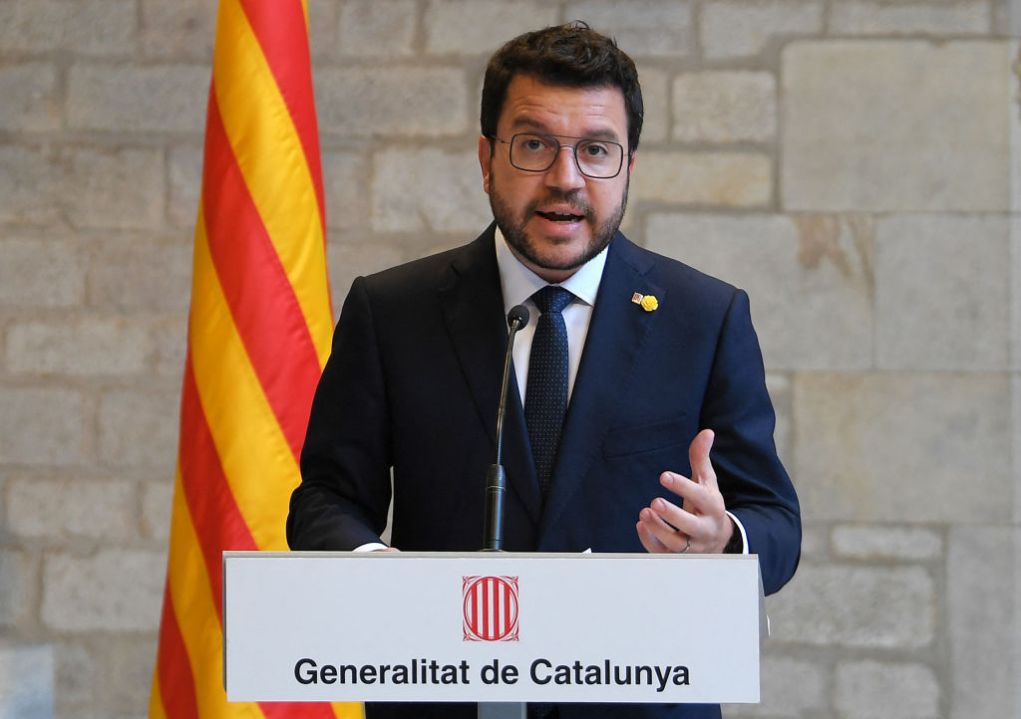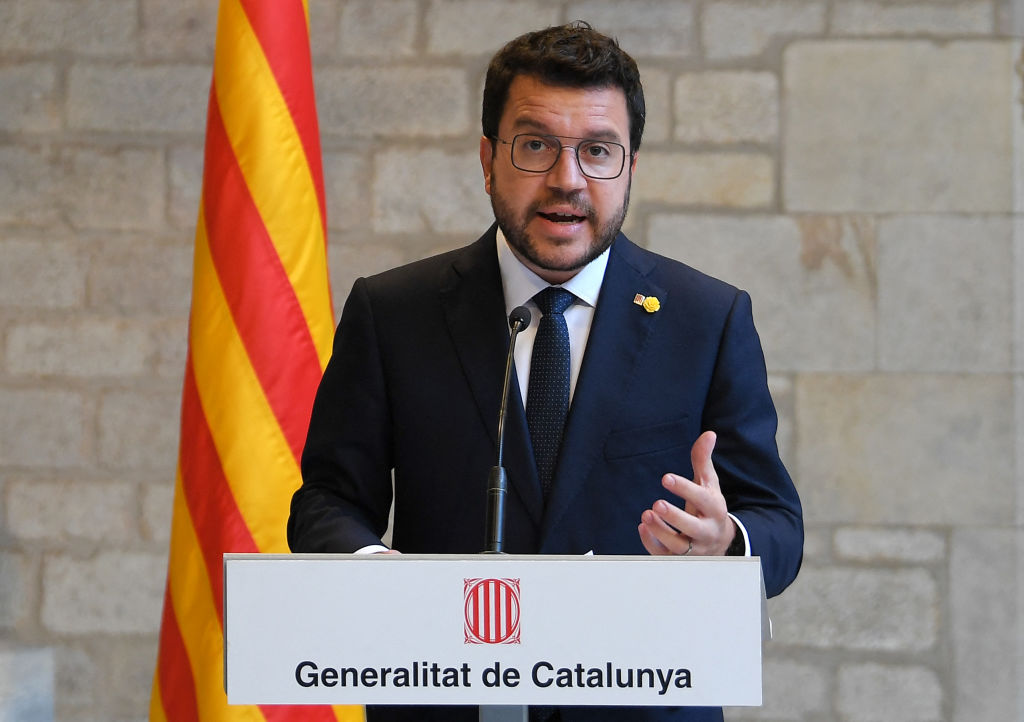Catalonia’s pro-independence government almost imploded last week. A major disagreement between its two governing parties occurred after one half of the coalition – hardline secessionist party Junts per Catalunya (Together for Catalonia) – proposed a no-confidence vote against president Pere Aragones for not pushing the secessionist cause hard enough. Aragones, a member of the more moderate Republican Left of Catalonia (ERC), promptly fired his deputy president Jordi Puignero. He said this was ‘absolutely necessary to strengthen the government’. Although an understandable reaction, it’s also just as likely to have the opposite effect.
Aragones is the most capable leader the Catalan separatists have had in years, but he’s in an impossible position. On one side he faces a mutinous coalition partner and the Catalan National Assembly (ANC), a civic organisation that campaigns for an independent Catalonia. On the other is a central government (also a coalition) led by Socialist prime minister Pedro Sanchez, who has stated that there will be no independence referendum on his watch. Whichever way he turns, Aragones meets opposition and conflict.
Animosity between Catalonia’s moderate and hardline secessionists is never far from the surface. The current crisis was triggered on 11 September, when Aragones refused to attend ANC-organised celebrations in Barcelona for Catalonia’s National Day, or Diada, commemorating the day in 1714 when Barcelona fell during the War of Spanish Succession.
Catalan separatists have stalled, hamstrung by their own internal divisions and opposition from a unionist central government
By not endorsing the Diada demonstrations, Aragones drew attention to his radical differences with the ANC, which has criticised the ‘inaction’ of the Catalan government and seeks a unilateral declaration of independence in 2023. Even calculating attendance at this year’s Diada is politically divisive: Barcelona’s police estimated about 150,00 people showed up, which would make it one of the worst-attended in years; the ANC, however, claims that almost four times that amount were present in the city centre.
Aragones might not be making much headway in his talks with Sanchez regarding a Madrid-sanctioned independence referendum – but Junts and the ANC, in demanding unilateral action, ignore the political complexities of their project. They also seem to forget that it was precisely by unilateral action that separatists contributed to a constitutional crisis from which Spain has still not recovered.
Last Saturday was the fifth anniversary of Catalonia’s most recent independence referendum, in which 92 per cent opted to split from Spain. Although the vote, which had 42 per cent turnout, had been declared illegal in advance by the Constitutional Court, then-Catalan president Carles Puigdemont unilaterally declared independence at the end of that month.
Reacting swiftly, and with unprecedented severity, the Spanish government led by Mariano Rajoy suspended Puigdemont’s cabinet and took direct control of the north-easterly region. In late 2019, after a six month trial, Spain’s Supreme Court handed several leading separatists lengthy prison terms for their roles in organising the referendum.
Puigdemont fled to Belgium in the vote’s aftermath and has not returned to Spain since for fear of being arrested. Last week, he thanked Puignero for his loyalty via social media, adding, ‘we will not be able to say the same about others when they leave office’. It was clear who Puigdemont was referring to – the current, less combative occupant of what he once called the Catalan presidency’s ‘electric chair’.
Since the tumultuous events of 2017, Catalan separatists have stalled, hamstrung by their own internal divisions and opposition from a resolutely unionist central government. There have been a couple of boosts, though. The first came in June last year, when Sanchez, mindful of his dependence on ERC votes in congress, pardoned and released all of the imprisoned separatists (by no means did this decision signal a softening of his stance towards their cause). The other came in the form of a ruling from the UN Human Rights Committee in August, according to which the political rights of separatists stripped of their duties and thrown into pre-trial detention in 2017 were violated.
Despite Aragones’ efforts to deradicalise the independence movement, its popular support seems to have dwindled. Polls have historically shown Catalans to be roughly split down the middle on the matter, but according to the most recent, released in March, only 38.8 per cent want an independent Catalonia, while 53.5 per cent wish to remain part of Spain. The poll also revealed that 72.6 per cent of Catalans want a referendum on secession, perhaps indicating that the majority regarded the 2017 vote as illegitimate (if true, that might also explain the low turnout).
In seeking Madrid’s approval to stage a legal referendum, Aragones points to the Scottish independence vote of 2014. He sees it as an example of what can be achieved if there is ‘political will’ on both sides, and insists that the Spanish and Catalan governments can collaborate in the same way. Surviving a term in Spain’s most charged political seat, though, might prove even more complicated.







Comments